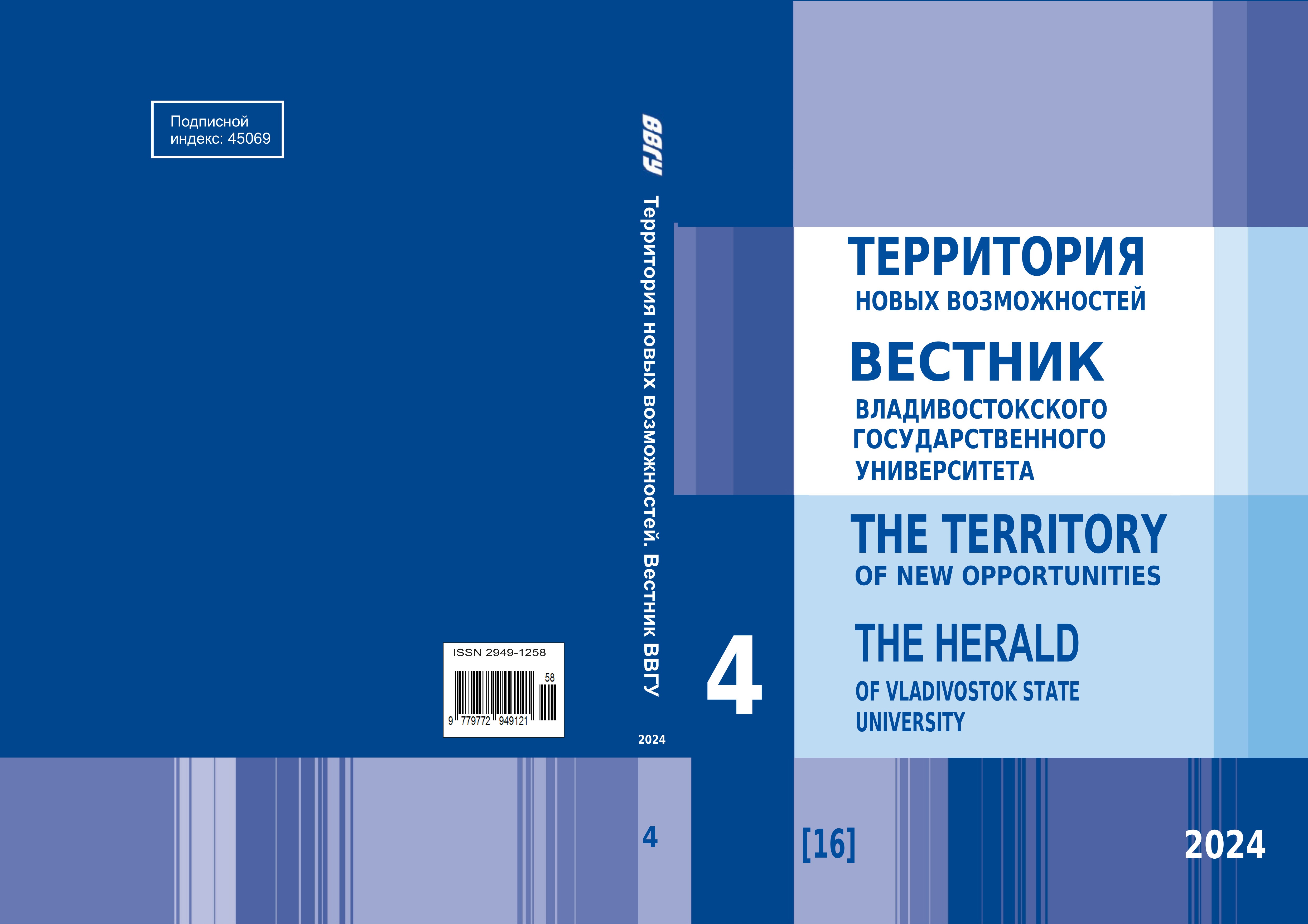employee
Vladbvostok, Vladivostok, Russian Federation
employee
Vladivostok, Vladivostok, Russian Federation
The article considers the issue of students' frequent use of borrowed words in their everyday speech and proposes methods for developing speech culture in the context of educational work. The research aims to identify the sources of borrowed vocabulary and create effective learning materials to regulate this phenomenon. The methods used in the study included observing students' speech behavior and analyzing psychological and pedagogical literature. The results of the study showed that the active use of foreign words is influenced by both external sociocultural factors, such as globalization, the Internet, and mass culture, and internal psychological needs of young people, such as self-identification and prestige. The study offers a new perspective on students' use of borrowed vocabulary by considering factors such as compliance with the Russian laws, pedagogical requirements and recommendations for improving educational work at the university. The conclusion suggests assignments that help students better understand the nuances of speech behavior in different settings. Future research could focus on students' understanding of speech behavior and how borrowings affect the development of their linguistic identity leading to the creation of teaching and methodological materials for developing students' speech culture in the context of language globalization. Additionally, the study could explore the role of teachers in preventing excessive use of foreign words by students. The findings of this study can be applied in the professional training of future teachers, in the activities of youth centers for educational work, and in the teaching of courses that aim to develop students' communicative competence.
education, speech culture, Russian, borrowed vocabulary, pedagogy, linguistic competence, effective communication, educational technologies, educational work.
1. Order of the Government of the Russian Federation from 01.07.2024 № 1734-r. Official Internetportal of legal information: [website]. 2024. URL: http://publication.pravo.gov.ru/-document/0001202407050032?index=1 (accessed date: 03.07.2024).
2. Bekasov M.D. Translation aspect of lacunarity (on the material of English and Russian languages). Moscow; 2012. 18 p. EDN: https://elibrary.ru/ZOLPLX
3. Krysin L.P. Russian word, own and foreign: Studies on modern Russian language and sociolinguistics. Moscow. Languages of Slavic Culture; 2004. 888 p.
4. Sayko D. "The language has always sorted out by itself what words it needs and what words it doesn't": an interview with Vladimir Pakhomov – researcher at the Institute of Russian Language of the Russian Academy of Sciences. Lifehacker [website]. 2024. URL: https://lifehacker.ru/russkii-yazyk-zaimstvovaniya/ (accessed date: 11.07.2024).
5. Leshkova O.O. "One among strangers": to the question of adaptation of borrowings (on the material of the modern Polish language). Language, consciousness, communication. Is. 38. Moscow. LLC "MAKS Press"; 2009. P. 135–145.
6. Lotte D.S. Issues of borrowing and ordering of foreign-language terms and terminoelements. Moscow. Nauka; 1982. P. 9–106. EDN: https://elibrary.ru/VUPXFZ
7. Shiryaev E.N. Culture of speech. Russian language: encyclopedia. Moscow. Bolshaya Rossiyskaya Encyclopedia; Drofa; 2008. 703 p.
8. Sulima I.I. Meanings of the formation of language culture of a teacher. Language and Culture. 2023; (64): 273–291. DOI:https://doi.org/10.17223/19996195/64/15 EDN: https://elibrary.ru/ALBUUQ
9. Mukhametzyanova G.V., Nadeeva M.I. Humanitarization – the key idea of overcoming the crisis of education. Kazan; ISO RAO; 1997. 116 p.
10. Borzova T.A. Fundamentals of modeling the content of the discipline "Speech practices" for students of higher education. World of Science, Culture, Education. 2024; (104): 33–36. DOI:https://doi.org/10.24412/1991-5497-2024-1104-33-36 EDN: https://elibrary.ru/SQXCCI
11. Borzova T.A., Krinitskaya M.Y. Educational potential of the discipline "Russian language in business communication" in higher education. Azimut Scientific Research: Pedagogy and Psychology. 2023; 12 (4 (45)): 13–16. DOI:https://doi.org/10.57145/27128474_2023_12_04_02 EDN: https://elibrary.ru/ABCDJM
12. Grishina I.A. Pedagogical conditions of formation of speech culture of students of humanitarian higher education institution. Kazan; 2001.18 p. EDN: https://elibrary.ru/NLXDOZ
13. Borzova T.A. Working program of the discipline (module) “Russian language in business communication”. Vladivostok State University: [website]. URL: https://reg.vvsu.ru/pdf/rpd.php?id=2152157618&pln=23496 (accessed date: 05.07.2024).
14. Konovalova Y.O., Krinitskaya M.Y. Working program of discipline (module) “Business communication in a multicultural environment”. Vladivostok State University: [website]. URL: https://reg.vvsu.ru/pdf/rpd.php? d=2151859854&pln=20589 (accessed date: 05.07.2024).





